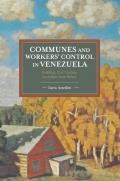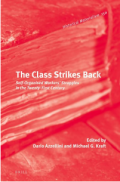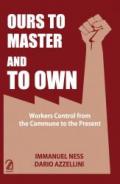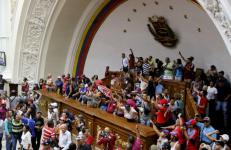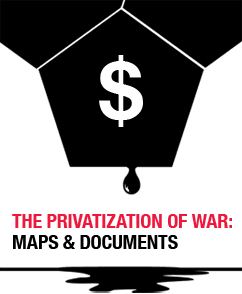All english articles
Are we heading for another economic crash?
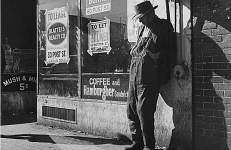
No doubt we are heading for another economic crash because capitalism is always heading for another economic crash. It is the nature of capitalism to increase surplus capital and then destroy it again through a crash or war, in order to restart the accumulation process once again. After every crisis, as historical data shows, the rich get richer and capital concentration grows. The cycles from crash to crash are becoming shorter as the accumulation of surplus capital becomes faster.
Analysis regional elections in Venezuela 2017, October 19, 2017
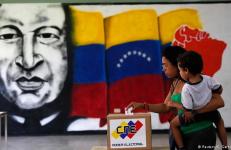
Venezuela - Chavismo wins 18 out of 23 regional governments, opposition 5. The governing PSUV and allied parties won in the states of Amazonas, Apure, Aragua, Barinas, Bolívar, Carabobo, Cojedes, Delta Amacuro, Falcon, Guarico, Lara, Miranda, Monagas, Sucre, Trujillo, Yaracuy, and Vargas. The opposition alliance MUD won 5 states: the Democratic Action (AD) party won Anzoátegui, Merida, Nueva Esparta, and Táchira; Primero Justicia won the strategic oil rich northwestern border state of Zulia.
Termine:
Workplace Takeovers for Self-Management in Europe: Comparative Case Studies in France, Greece and Italy
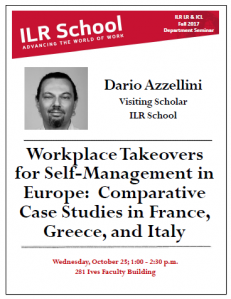
Dario Azzellini, Visiting Scholar ILR School
https://www.ilr.cornell.edu/centers-institutes/international-programs/vi...
Building 21st Century Socialism from Below
Communes and Workers' Control in Venezuela
An outline
ALBA – an alternative regional alliance?
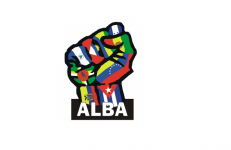
Various regional integration initiatives have emerged as a counterpoint to the advance of globalisation. The Bolivarian Alliance for the Peoples of Our America (ALBA) is of interest from the perspective of the European left, because cooperation and integration take a very different shape in ALBA from other regional alliances. The three basic principles of ALBA are complementarity, solidarity and cooperation. That in itself is a marked difference from the European Union (EU) with its four fundamental freedoms (the free movement of people, goods, services and capital).
Self-Organised Workers’ Struggles in the Twenty-First Century
The Class Strikes Back
The Class Strikes Back examines a number of radical, twenty-first-century workers’ struggles. These struggles are characterised by a different kind of unionism and solidarity, arising out of new kinds of labour conditions and responsive to new kinds of social and economic marginalisation. The essays in the collection demonstrate the dramatic growth of syndicalist and autonomist formations and argue for their historical necessity.
Video & Audio:
Termine:
The Eastern Conference for Workplace Democracy (ECWD): Contemporary Crisis, Recuperated Workplaces and Self-Management

June 11, 2017 11:40 am – 1:10 pm
Termine:
Left Forum, The Resistance: Cooperatives - path to a different society or alternative business model? Chances and risks of workers' self-management in capitalism
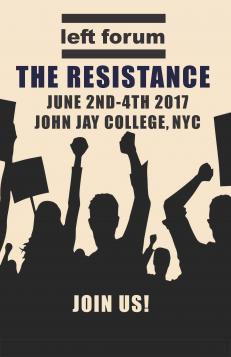
Room:1.114
Timeslot:
SUNDAY June 4th Session 6: 12:00pm - 1:50pm
Dario Azzellini in: Towards just and sustainable economies The social and solidarity economy North and South, Edited by Peter North and Molly Scott Cato
"21st century socialism? Venezuela’s solidarity, social, popular and communal economy"
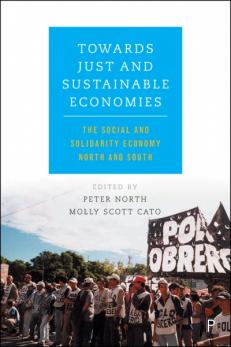
With capitalism in crisis - rising inequality, unsustainable resource depletion and climate change all demanding a new economic model - the Social and Solidarity Economy (SSE) has been suggested as an alternative. What can contribute in terms of generating livelihoods that provide a dignified life, meeting of social needs and building of sustainable futures? What can activists in both the global North and South learn from each other?
Termine:
OCCUPY - RESIST - PRODUCE, kinoki mikrokino #222
Massenentlassungen und Fabrikschließungen als Folge der seit 2007 andauernden Finanzkrise haben die Frage nach der Arbeiter_innen-Selbstverwaltung neu gestellt. Oliver Ressler und Dario Azzellini untersuchen in der Dokumentarfilm-Trilogie OCCUPY, RESIST, PRODUCE drei Beispiele von Fabriksbesetzungen, in Mailand, Rom und Thessaloniki, die sich in erfolgreiche Experimente zur Neuerfindung der Arbeit im 21. Jahrhundert entwickelt haben. Die gesamte Trilogie ist zum ersten Mal in Wien zu sehen:
Termine:
Mikhail Karikis, Dario Azzellini and Oliver Ressler Artists’ Film International

Ain’t Got No Fear (2016) by Mikhail Karikis (b. 1975, Greece) was created with a group of boys from the industrial marshland of the Isle of Grain in South East England. With the sound of a neighbouring power plant being demolished as their beat, the boys rap about past memories and possible futures, while questioning notions of territory and authority. Meanwhile, author-filmmaker Dario Azzellini (b. 1967, Germany) and artist Oliver Ressler (b.
Workers Control From the Commune to the Present
Ours To Master and To Own
From the dawning of the industrial epoch, wage earners have organized themselves into unions, fought bitter strikes, and gone so far as to challenge the very premises of the sytem by creating institutions of democratic self-management aimed at controlling production without bosses. With specific examples drawn from every corner of the globe and every period of modern history, this pathbreaking volume comprehensively traces this often underappreciated historical tradition.
Termine:
Repair: Resource
The economic crisis that began in 2007-8 led to layoffs on a massive scale, leaving thousands of newly unemployed workers with little hope of another job. Their response put workers’ control back on the agenda in Europe. For many years beforehand, factories had been occupied and recuperated almost exclusively in Latin America.
Termine:
Dizziness – Navigating the Unknown

In cooperation with CCA Ujazdowski Castle Warsaw, Diagonale´17, MEGAPHON and the Institute for Differential Psychology, University of Graz. Supported by the Academy of Fine Arts Vienna, Dizziness - A Resource (FWF-Peek) and the David Herzog Fund of the Styrian Universities.
Curated by: Katrin Bucher Trantow, Ruth Anderwald and Leonhard Grond
Termine:
OLIVER RESSLER. PROPERTY IS THEFT
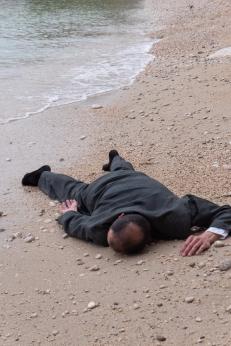
Property is theft! (La propriété, c’est le vol!, the famous declaration made by French anarchist Pierre-Joseph Proudhon in 1840, has the impact of a political slogan and serves as the title of Austrian artist Oliver Ressler’s first survey exhibition in Romania. The crisis of Neoliberalism, Oliver Ressler’s favourite theme throughout his activity over the past twenty years, points to the fundamentally economic understructure of all present social and political imbalances.
Termine:
26 February 2017: Everything Under Control
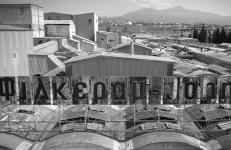
In most cases an occupation is not a deliberate step towards workers' control but a means of workers' struggle against the closure of a production site or company or the relocation of production to another country. Occupy, Resist, Produce focuses on the rare, better organized cases where the purpose of the struggle is to bring production under workers’ control.
Constituent and Constituted Power: Reading Social Transformation in Latin America
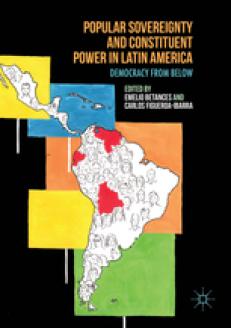
Popular Sovereignty and Constituent Power in Latin America.
Democracy from Below.
Economic Update with Richard Wolff, democracy at work
Economic Update: Trump Explained
Economic Update is a weekly program hosted by Richard D. Wolff and is played on over 60 stations nationwide. Wolff takes complex economic issues and empowers listeners with information to analyze their own financial situation as well as the economy at large. By focusing on the economic dimensions of everyday life - wages, jobs, taxes, debts, and profits - the program explores alternative ways to organize markets and government policies.
You are missing some Flash content that should appear here! Perhaps your browser cannot display it, or maybe it did not initialize correctly.
Termine:
Who Throws Whom Overboard? Oliver Ressler
Oliver Ressler
SALT Galata
Who Throws Whom Overboard? is a major presentation of Oliver Ressler's works
dating from 2004 - 2016, and his rst in Istanbul since the exhibition An Ideal Society
Creates Itself at Platform Garanti Contemporary Art Center in 2005.
Who Throws Whom Overboard? brings together photographic works, wall texts, lms
and installations addressing migration, borders, citizenship, capital and alternative
economics. The exhibition does not suggest that these “issues” are related in terms
Workers’ Control and Workers’ Councils
Class Struggle in the Bolivarian Process
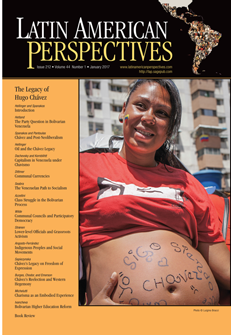
Abstract
Workers’ initiatives and government measures in Venezuela to increase workers’ participation in the management of their companies sharply contrast with institutional actions that intend to inhibit and reduce such participation. Despite this, the movement for workers’ control in Venezuela has grown in recent years and achieved some important victories in conflicts in state companies.
Termine:
Dario Azzellini: Labour as a Commons: The Example of Worker-Recuperated Companies
International Development Studies Visiting Speakers Program
Termine:
“Democracy and the Commons: How Communities Around the World Are Taking Control of their Work, their Neighbourhoods and their Lives.”
A free public lecture and video screening
Dario Azzellini is an Italian/German scholar, author, filmmaker and political activist who lives in Berlin and is an assistant professor at Johannes Kepler University in Linz, Austria. He holds a PhD in political science from the Goethe University in Frankfurt (Germany) and a PhD in sociology from the Benemérita Universidad Autónoma de Puebla (Mexico).
(co)Author of:
Labour as a Commons: The Example of Worker-Recuperated Companies
This article argues that labour can be understood as a commons, located in the discussion of how commons can advance the transformation of social relations and society. To manage labour as a commons entails a shift away from the perception of labour power as the object of capital’s value practices, towards a notion of labour power as a collectively and sustainably managed resource for the benefit of society.
Recent years have seen a proliferation of recuperated workplaces around the globe, laying the foundations for a truly democratic workers’ economy.
Workers’ Control in the Crisis of Capitalism

In February 2016, a dozen former workers of a small woodworks plant in the small Greek town of Patrida, some 60 kilometers from Thessaloniki, had had enough. Since 2008 they had been tricked by the owners. With a promise to pay back everything soon, the bosses did not pay the workers their full salary anymore, reduced working hours and announced bankruptcy without making it official. But the situation never improved and the workers never saw their money. Finally, in December 2015, the plant closed.
Note from the LeftEast editors: The following interview was originally published in Serbian at Mašina.rs
Workers Control in Venezuela and Beyond: An Interview with Dario Azzelini
Dario Azzelini is a theoretician and political activist splitting time between Berlin and Caracas. He recently stayed in Belgrade to participate in the conference “Let’s bring socialism back into the game“. That gave us an opportunity to talk about different topics he addresses in his work – ranging from the question of Maduro’s election loss, the interrelation of art and politics, to cases of recuperations of workers’ factories throughout Europe.
"Occupy, Resist, Produce" in the The foundation La Fabbrica del Cioccolato
Oliver Ressler – Confronting Comfort’s Continent
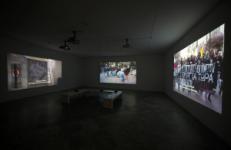
Oliver Ressler, born 1970, lives and works in Vienna and produces installations, projects in public space, and films on issues such as economics, democracy, global warming, forms of resistance and social alternatives.
In: Moving Beyond Capitalism
The Communal State (Venezuela): Communal Councils and Workplace Democracy

Azzellini, Dario (2016): “The Communal State (Venezuela): Communal Councils and Workplace Democracy”. In: DuRand, Cliff (Editor): Moving Beyond Capitalism. New York: Routledge.
